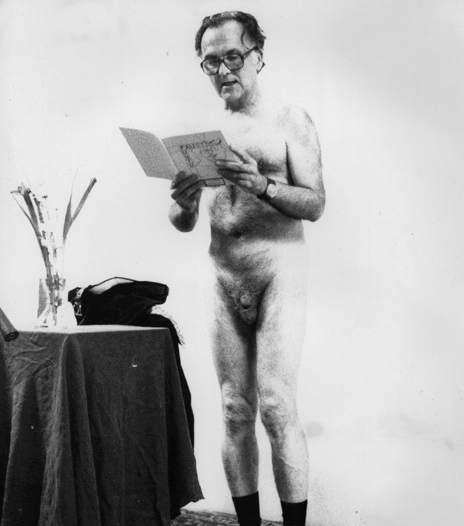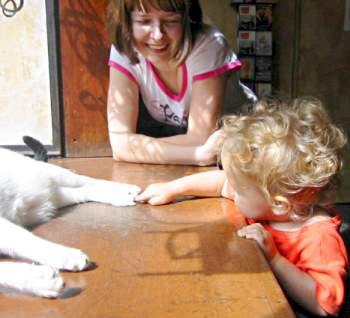Stet
Stet Stet
Where
the curve of the road rhymes with the reservoir’s
and
cleared of the leafy veils that for six months
obscured
it,
the
landscape’s wet chestnut
in
the gray descended cloud
intones
You’re lucky to live in a watershed
so
no vast tracts of tacky drywall
turn
the land into peremptory enclosures.
You’ve
bought in.
The
venial sin:
being
exceptional.
Reading
Hölderlin.
And
the natural hallucinogen of joy
helium-cum-oxygen
leaving
wordy outputs
hanging
on piney tenterhooks
while
all the wild protected liminal woods
contrive
a blind.
Discretion
“Furzy
Jersey” isn’t quite right.
A
life of Hoboken after Hoboken . . .
“Your
landscape is not here.”
“I
do not make a habit of losing landscapes.”
I
accept a cup of coffee on behalf of man’s prejudice against himself
—
“anything
which is a product of his mind seems to him to be unreal
or
comparatively insignificant” as the landscape draws an arm in
from
the left but keeps its right arm flat on the horizon, or draws
both
arms in, as rows of trees close up the view like hanging sleeves,
and
the flatness is why Maryland is loathed until, rising on a bridge,
clothed
— in cerulean tulle: the suspension like a row of legs
poised
on the barre by a mirror and jutting from the jeté (à la antlers
from
the startled buck in the x-ing sign) a metal comb. Fanciful!
And
the shadows so sharp the tires hiccup over them like rumble strips
as
if shadows gel, succumbing to the laws of physics.
There
is some threshold, e.g. at which instances of “hither”
gel
into usage. And speaking of tires, as full of air as “thither,”
there
is a sign: “Millefueille Tires” right off the ramp. — Coffee
helps.
“As
close as Pennsylvania to Maryland; as far as Philadelphia
from
Annapolis.” It was while visiting, ever-so-briefly,
one
of those townhouses set like jewel boxes in the jostling street,
as
if Delft had never gone pfft,
that I realized my abhorrence
of
the housing development, for instance the one in Camezotz, PA,
where
I spent some time as a kid riding a bike around a system
of
cul-de-sacs like a video game ca. 1981, derived
from
a prelapsarian innocence of systems; not to mention
nonstandard
door frames, window sizes, variable-width-siding,
and
glass that à la its moniker, “slow liquid,” attenuated
in
some sense like a tear-shaped bass note, toward the bottom
of
the pane.
How
to Wreak Revenge on a Town by Painting
Your
House Orange . . . and studding it with white urinals (yes)
and
the coup de grâce:
a pickaninny butler with ashtray hand extended.
I
have a hard time comprehending how people can feel such
ownership
that they must prove it by defacement. The silence in a room
where
you have recently spoken is different from any other silence,
and
this is evident from the sound engineer who records dead air
for
minutes on end after you have left. “We can take consonants
and
vowels from all the words you’ve pronounced and make you say
things
you’ve never said”; so the cushion of silence on which they
cut
and paste must have the same consistency, must be the same silence
disgruntled
by a helicopter. We can take consonants and vowels
from
all the words you’ve pronounced and make you say things
you’ve
never said. Here one rediscovers a prejudice for oneself.
And
the idea that a room corresponds to a musical note
and
thus “resonates” when sung to — the idea that even this bridge
might
correspond to a B-flat that, when “sung” by the wind,
causes
it to oscillate and utterly collapse — there are photographs —
suggests
despite the belief that “we are satisfied only
when
we fancy ourselves surrounded by objects and laws
independent
of our nature,” music is material, but “the material”
isn’t
wholly
material. Speaking of which, construction materials
are
way
up this year thanks to the hurricane damage in the Gulf.
“You
mean, like, the wholesale destruction of cities.”
(“I
am not in the habit of losing landscapes.”) When Ronnie asks
if
your family is from “the other side” she has to use the phrase
twice
before
I understand “born in Ireland.” No, born here. But “the other
side”
conjures
a mirror world doesn’t it? — let alone the land of faeries,
poetry,
and
mirage that we normally associate with “Eire.” I mean,
take
the custom of posing riddles to strangers or choosing a question
which
only one person answering to an identity could know.
The
marriage bed hewn from a tree with its roots in the floor. Or
“What’s
your mother’s maiden name?” On an island off the coast of Maine,
a
summer visitor walked into a library and asked the librarian,
whom
one imagines a woman of indeterminate middle- to old-age
grown
into her role with its props, its pomp, its flashing bifocals:
“How
many books can one take out at a time?”
“Discretion.”



.jpg)








